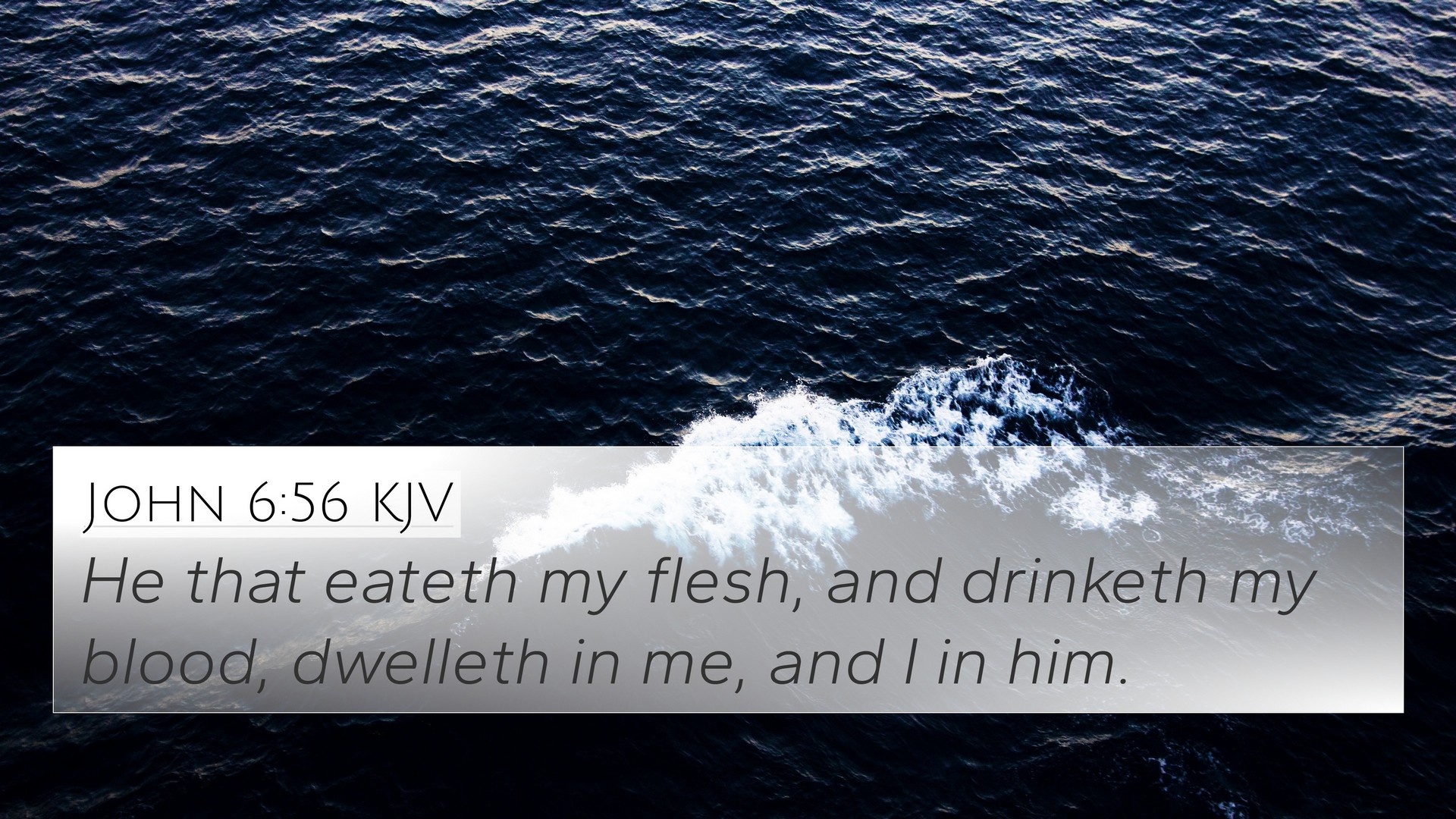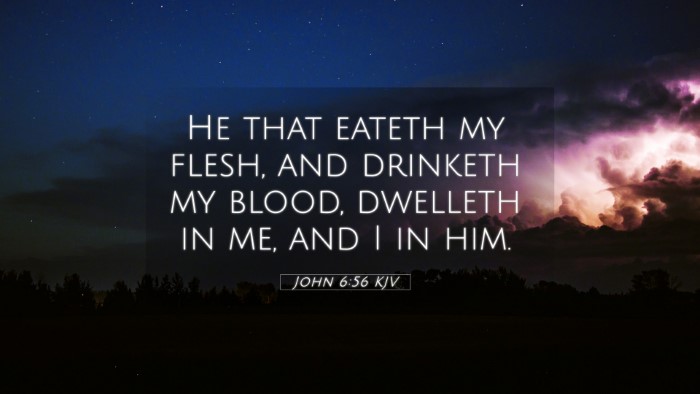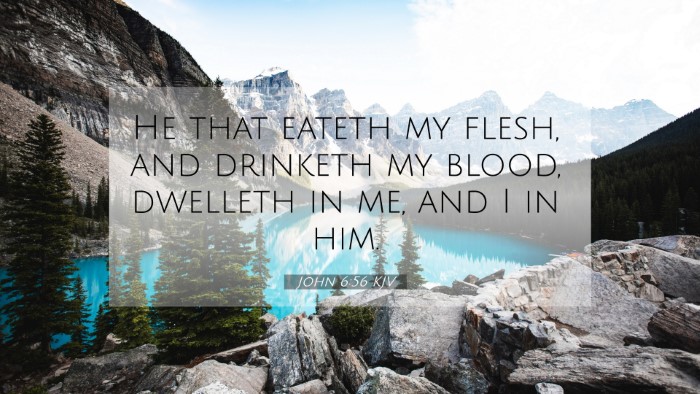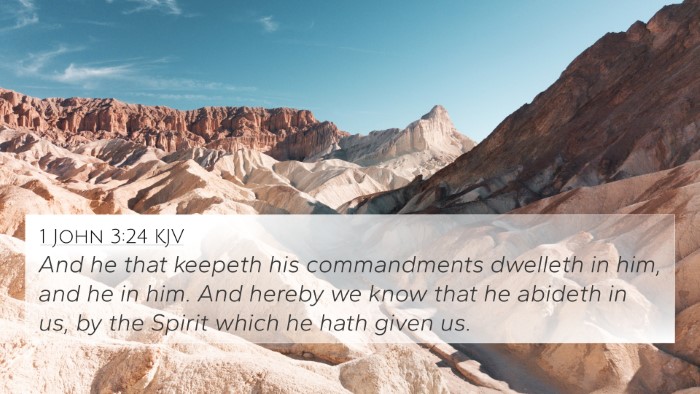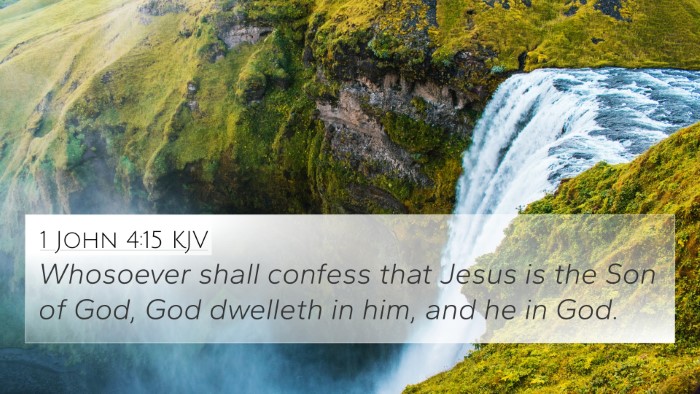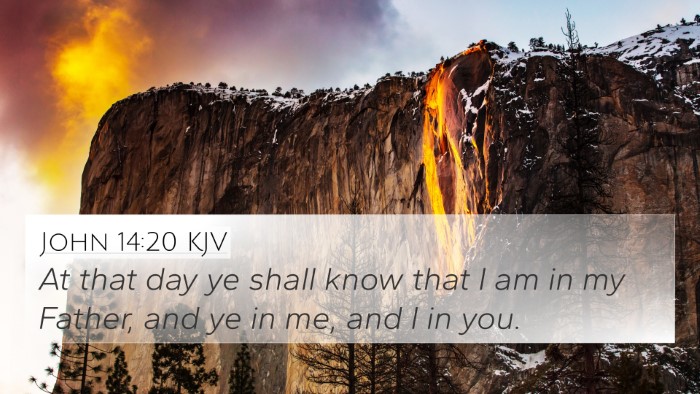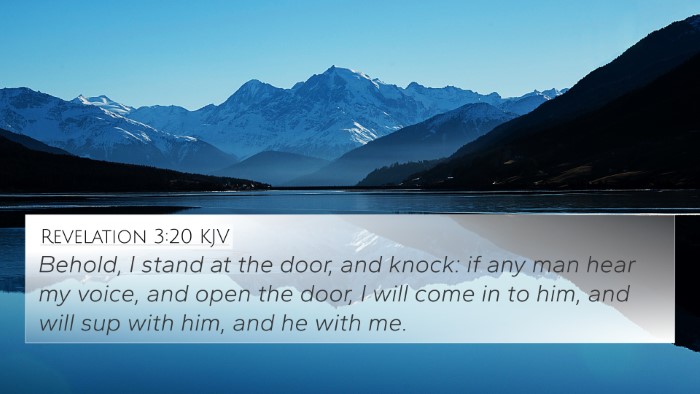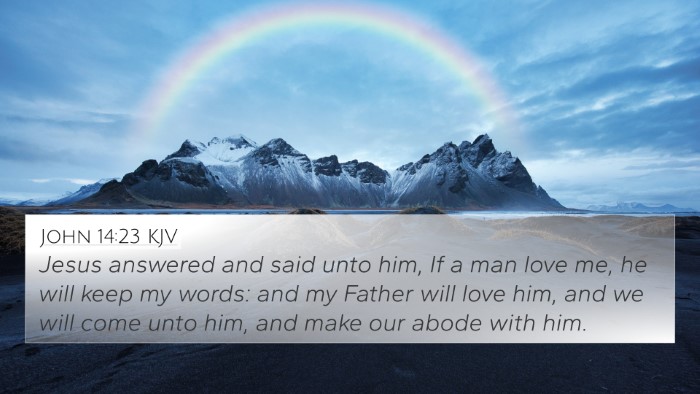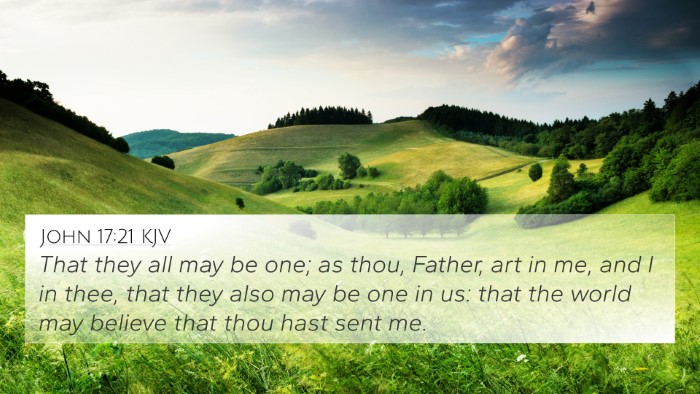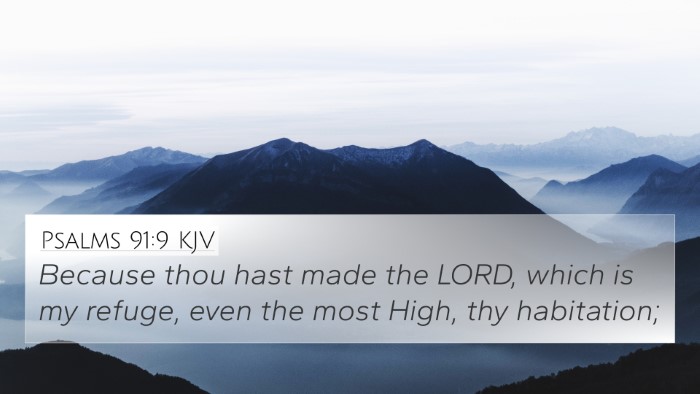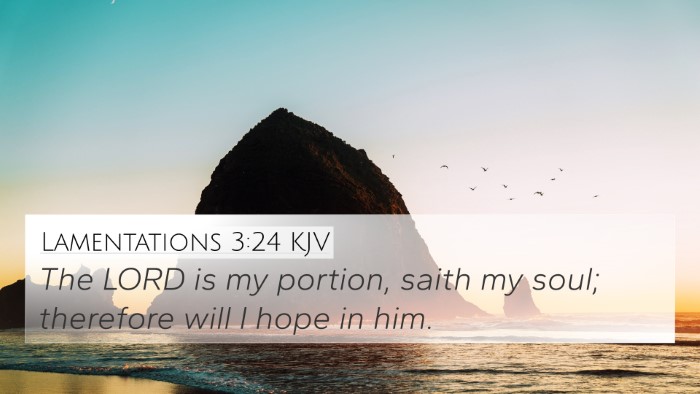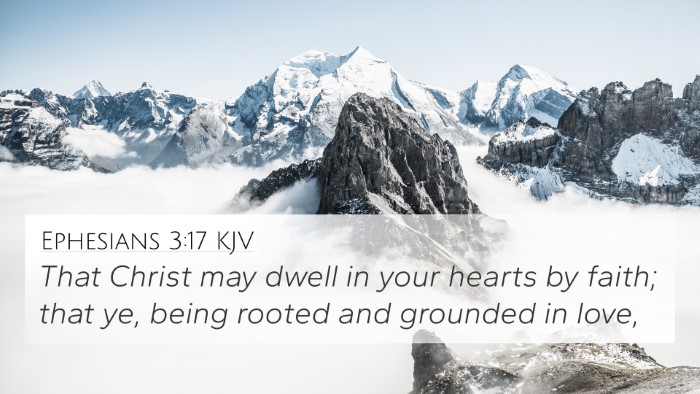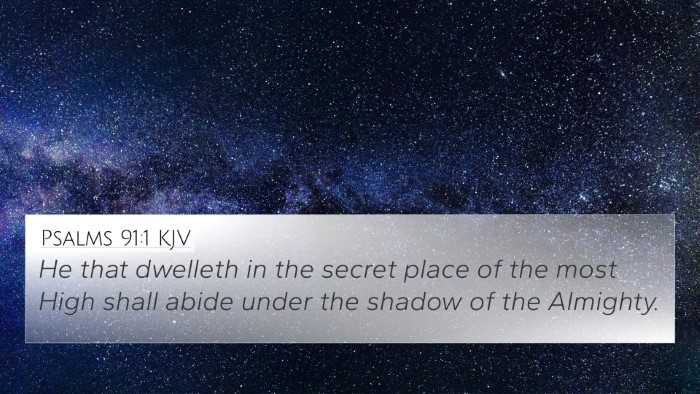Understanding John 6:56
John 6:56 states: "He who eats my flesh and drinks my blood abides in me, and I in him." This verse carries profound implications regarding the relationship between believers and Christ, emphasizing not only spiritual sustenance but also intimate communion with Him.
Commentary Insights
Matthew Henry's Commentary
Matthew Henry emphasizes the importance of Christ as the true bread from heaven. He interprets the act of eating Christ’s flesh and drinking His blood as a metaphor for genuine belief in Him. Henry articulates that partaking in these elements signifies not just an acknowledgment of Christ's sacrifice but an actual participation in His redemptive work.
Albert Barnes' Notes
Albert Barnes highlights that this verse points to a spiritual reality rather than a literal physical act. He asserts that "eating" and "drinking" symbolize accepting Christ and His atoning sacrifice fully. Barnes discusses how this verse relates to Jesus' teaching on eternal life, where abiding in Him is essential for spiritual survival.
Adam Clarke's Commentary
Adam Clarke examines the implications of abiding in Christ. He notes that this relationship is reciprocal—when one partakes of Christ, they gain access to divine life, while Christ, in turn, dwells within them. Clarke emphasizes the transformative power of accepting Christ's sacrifice, leading to a new identity and continuous spiritual nourishment.
Bible Verse Cross-Referencing
Understanding John 6:56 can be enhanced through various related verses that deepen the exploration of the themes of communion and spiritual sustenance. Here are some essential cross-references:
- Matthew 26:26-28: The Last Supper highlights the symbolic significance of the bread and wine as Christ’s body and blood.
- John 15:4-5: Emphasizes the necessity of abiding in Christ for spiritual vitality and fruitfulness.
- 1 Corinthians 11:23-26: Paul reflects on the institution of the Lord's Supper, reinforcing the notion of remembrance and connection through communion.
- John 3:36: Highlights the relationship between believing in the Son and the assurance of eternal life.
- 1 John 4:13: Discusses the evidence of mutual indwelling between believers and God.
- Isaiah 55:1: Offers an invitation for everyone to come and partake in spiritual sustenance.
- Romans 8:9: Stresses the importance of the Spirit of Christ dwelling in believers, akin to "abiding in Him."
- Colossians 1:27: States the mystery of Christ in you, which is the hope of glory.
- Revelation 3:20: Jesus offers to dine with those who open the door to Him, reflecting the intimacy of the relationship.
- Hebrews 9:22: Speaks of the necessity of blood for redemption, anchoring the significance of Christ’s sacrifice.
Thematic Bible Verse Connections
The connection between various Bible verses can illustrate the rich tapestry of themes surrounding communion with Christ. For instance, John 6:56 is intricately linked to the books of both the Old and New Testaments through the concept of sacrifice and sustenance.
Exploring John 6:56 through the lens of comparative Bible verse analysis reveals key theological connections:
- Old Testament Sacrifices: The sacrificial system described in Leviticus establishes a historical basis for the necessity of blood for atonement, foreshadowing Christ’s ultimate sacrifice.
- Nourishment in the Wilderness: Manna in Exodus serves as a type of spiritual sustenance that parallels Christ as the true bread.
Tools for Bible Cross-Referencing
For those aiming to delve deeper into scripture connections, various tools can enhance the study of John 6:56:
- Bible Concordance: Provides a detailed list of terms and verses for searching themes.
- Bible Cross-Reference Guide: A structured tool for finding related verses.
- Bible Chain References: Displays interconnected verses for thematic study.
- Cross-Reference Bible Study Methods: Encompasses various approaches to understanding scripture relationships.
- Comprehensive Bible Cross-Reference Materials: Published resources that explore connections extensively.
Conclusion
John 6:56 serves as a cornerstone for understanding the intimate relationship between believers and Christ through the act of communion. By engaging with the rich tapestry of related verses and utilizing cross-referencing tools, individuals can significantly deepen their understanding of both this verse and its broader implications within the scriptural narrative.
